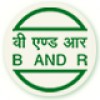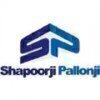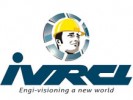Filter interviews by
Bridge & Roof Co Interview Questions, Process, and Tips
Bridge & Roof Co Interview Experiences
23 interviews found
I applied via Campus Placement and was interviewed before Jun 2022. There were 2 interview rounds.

(4 Questions)
- Q1. Fundamentals of instrumentation
- Ans.
Fundamentals of instrumentation involve understanding the principles and techniques used in measuring and controlling physical quantities.
Involves understanding the basic principles of measurement such as accuracy, precision, and resolution
Includes knowledge of different types of sensors and transducers used for measuring physical quantities
Covers calibration procedures and techniques for ensuring accurate measurements
...
- Q2. Temparature Detector
- Q3. Pressure sensor?
- Q4. Tank firm management
Interview Preparation Tips
Graduate Engineer Trainee (Get) Interview Questions asked at other Companies
I applied via Recruitment Consulltant and was interviewed in Dec 2023. There was 1 interview round.
(4 Questions)
- Q1. Fittings and detection related
- Q2. What is your name
- Q3. Family background
- Q4. Previous company work related
Supervisor Interview Questions asked at other Companies
I applied via Shine and was interviewed in Apr 2024. There was 1 interview round.
(1 Question)
- Q1. What is jha and hira
- Ans.
JHA stands for Job Hazard Analysis, which is a process used to identify and mitigate potential hazards in the workplace. HIRA stands for Hazard Identification and Risk Assessment, which is a systematic approach to identifying hazards and assessing risks associated with them.
JHA is a detailed process that involves breaking down a job into specific tasks, identifying potential hazards associated with each task, and imple...
Interview Preparation Tips
Top Bridge & Roof Co Safety Officer Interview Questions and Answers
Safety Officer Interview Questions asked at other Companies
I applied via Approached by Company and was interviewed in Mar 2023. There were 2 interview rounds.

(2 Questions)
- Q1. 1- Wire Sling Life Line Use Luck Bulduck Clamp minimum Distance! 2- What is ANSI Code and OSHA Code And BS Material code
- Ans.
The wire sling life line use luck bulduck clamp minimum distance is determined by safety regulations and standards.
The minimum distance for wire sling life line use luck bulduck clamp is specified by safety regulations.
ANSI Code refers to the American National Standards Institute code, which sets standards for various industries.
OSHA Code refers to the Occupational Safety and Health Administration code, which enforces ...
- Q2. A10.8 2011 and 29CFR 1926:454B TG 20:13
Scaffolding Inspector Interview Questions asked at other Companies
Bridge & Roof Co interview questions for popular designations

(2 Questions)
- Q1. Self introduction only
- Q2. Brief self introduction
(1 Question)
- Q1. Payment bargaining and facilities explanation
- Ans.
Payment bargaining involves negotiating payment terms and facilities explanation involves detailing the amenities provided.
Payment bargaining involves discussing payment terms, schedules, and methods with clients or contractors.
Facilities explanation includes outlining the amenities available on-site, such as accommodation, transportation, and recreation.
Providing examples of previous successful payment negotiations an...
Planning Engineer Interview Questions asked at other Companies
Get interview-ready with Top Bridge & Roof Co Interview Questions
I applied via Walk-in and was interviewed in Jul 2022. There were 2 interview rounds.

(4 Questions)
- Q1. Oil steel storage tank, piping, equipment etc quality related question? And project management related question?
- Q2. Company safety policy and welfare system of company employee related question
- Q3. Company work culture related question
- Q4. Companies growing of there work culture, quality, production and safety
Interview Preparation Tips
Mechanical Supervisorarea Supervisor Interview Questions asked at other Companies

(1 Question)
- Q1. What is your job? Which salary is drawn in hand?
QA QC Supervisor Interview Questions asked at other Companies

Interview Preparation Tips
To help make sure you’re prepared:
read the job description and person specification carefully. Be clear on the skills and qualities the employer is looking for
check the company website to find out more about its products or services and their plans for the future
go over your CV or application form and think about things the employer may ask you about
prepare some examples that show you have the right skills, personal qualities and experience. Use the STAR method
practise your timings on presentations and keep a back-up copy
ask someone you trust to help you practise answering questions
think of 2 or 3 questions of your own that you can ask at the end of your interview, to show you’re enthusiastic about the job
pick out something suitable and comfortable to wear
check what time you need to arrive and the name of the person you need to see
make sure that you know how to get to where the interview is being held. Work out your public transport route or where you can park. Plan to arrive 5 to 10 minutes before the interview starts
make sure you know who to call in case you’re late for any reason.
Civil Site Engineer Interview Questions asked at other Companies

(1 Question)
- Q1. About works and materials
(1 Question)
- Q1. Discuss about salary and facility
Interview Preparation Tips
Executive Packaging Interview Questions asked at other Companies
(1 Question)
- Q1. Gate pass Vehicle metriyal manpower pulice police verification. side se relative all work
Interview Preparation Tips
I applied via Recruitment Consulltant and was interviewed in May 2022. There were 2 interview rounds.

Myself detailed personal information and work skills and experience
Interview Preparation Tips
- NDT Level
QA QC Engineer Interview Questions asked at other Companies
Top trending discussions






Bridge & Roof Co Interview FAQs
The duration of Bridge & Roof Co interview process can vary, but typically it takes about less than 2 weeks to complete.
Recently Viewed
Tell us how to improve this page.
Bridge & Roof Co Interviews By Designations
- Bridge & Roof Co Safety Officer Interview Questions
- Bridge & Roof Co Scaffolding Inspector Interview Questions
- Bridge & Roof Co Planning Engineer Interview Questions
- Bridge & Roof Co Electrical Engineer Interview Questions
- Bridge & Roof Co Diploma Electrical Engineer Interview Questions
- Bridge & Roof Co Assistant Construction Manager Interview Questions
- Bridge & Roof Co Safety Officer/Manager Interview Questions
- Bridge & Roof Co QA QC Engineer Interview Questions
- Show more
Interview Questions for Popular Designations
Bridge & Roof Co Interview Process
based on 20 interviews
Interview experience
Interview Questions from Similar Companies
Bridge & Roof Co Reviews and Ratings
based on 552 reviews
Rating in categories
|
Civil Site Engineer
158
salaries
| ₹0 L/yr - ₹0 L/yr |
|
Safety Officer
156
salaries
| ₹0 L/yr - ₹0 L/yr |
|
Site Engineer
150
salaries
| ₹0 L/yr - ₹0 L/yr |
|
Piping Engineer
83
salaries
| ₹0 L/yr - ₹0 L/yr |
|
Mechanical Engineer
74
salaries
| ₹0 L/yr - ₹0 L/yr |
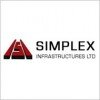
Simplex Infrastructures
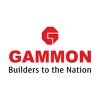
GAMMON INDIA

Hindustan Construction Company

Larsen & Toubro Limited
- Home >
- Interviews >
- Bridge & Roof Co Interview Questions
